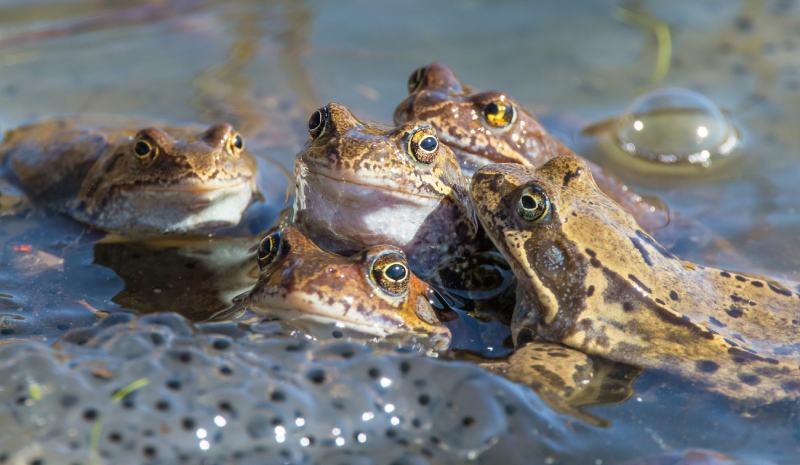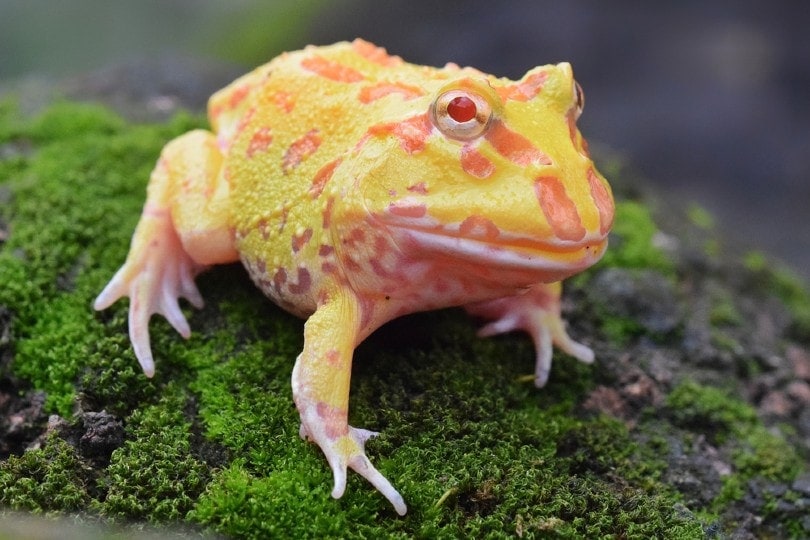Are Frogs Nocturnal? Vet-Verified Biorhythm Explanation
Updated on
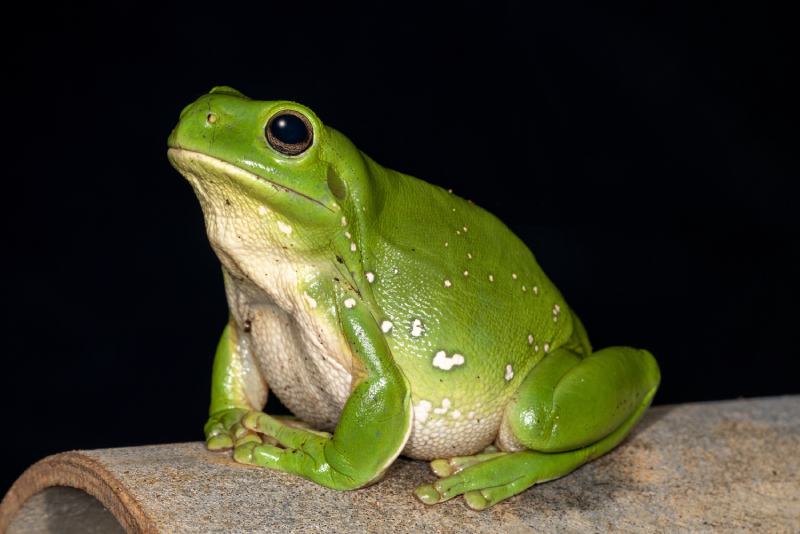
The animal kingdom is full of night owls, moonlight-prowling cats, and—nocturnal frogs? Yes, most frogs are nocturnal critters that prefer to sleep during the hot days that would normally overheat their ectothermic bodies. At night, they wake up to hunt, call for mates, and skip daytime predators in the poor light. For the nocturnal predators, frogs have adapted to sort of camouflage into the night grass and confound would-be assailants.
Just as important, nights are a lot cooler, and a frog that may have spent the day in a warm, stuffy burrow can cool off. The night also gives frogs an advantage in the food department because insects are a lot more active at night, so they have more opportunities to fill their bellies. That said, being too cool can make a frog slow down, so it’s a fine balance for them.
If you’ve ever wondered about frogs’ sleeping habits, you’re in the right place. Join us as we explore the frogs that aren’t nocturnal, how frogs communicate at night, and whether frogs hibernate.
What Do Frogs Do at Night?
We briefly covered the basics of what frogs do at night: mate, hunt, avoid predators, and cool down. Let’s discuss those in a little more detail below so you can get a better idea of how the frog lives in the wild.
Mating
Aside from their iconic ribbet, different species of frogs may bellow or croak to try and attract mates at nighttime. Frog mating season is typically during the spring or wet season when the ground is thawing and becoming more moist. When it’s time to lay eggs, frogs prefer to lay them in slow-moving bodies of water like ponds or fens.
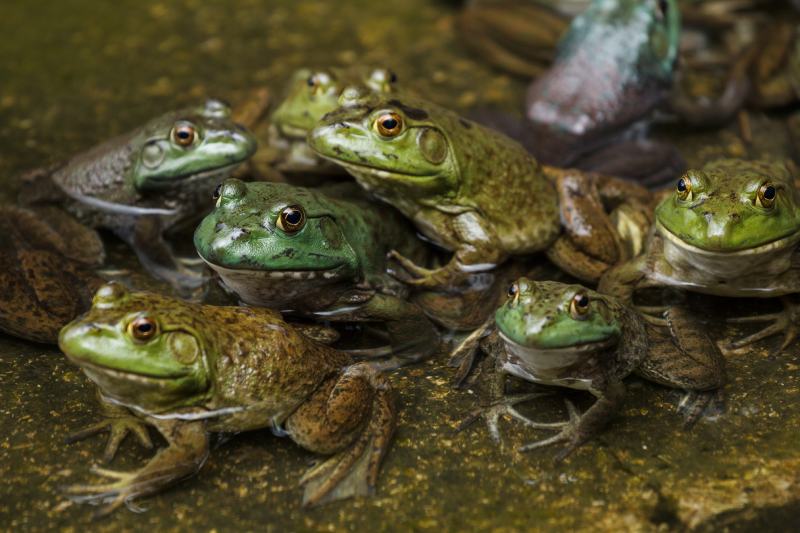
Hunting
Frogs in the wild are carnivores that eat an array of prey animals, but the one constant is insects. Frogs can shoot their long, sticky tongue out an astonishing distance to snatch bugs out of the air, and they even have teeth designed to hold prey while they swallow it. Larger frogs can eat fish, small rodents, minnows, and even other frogs.
Evading Predators
Most of the frog’s natural predators are asleep during the night, making it the perfect time for the frog to get their business done. However, frogs still face mortal threats like snakes, owls, and foxes. That’s why they’ve evolved to better camouflage into the dark green forest, which makes predators squint really hard before they can grab a frog for lunch.
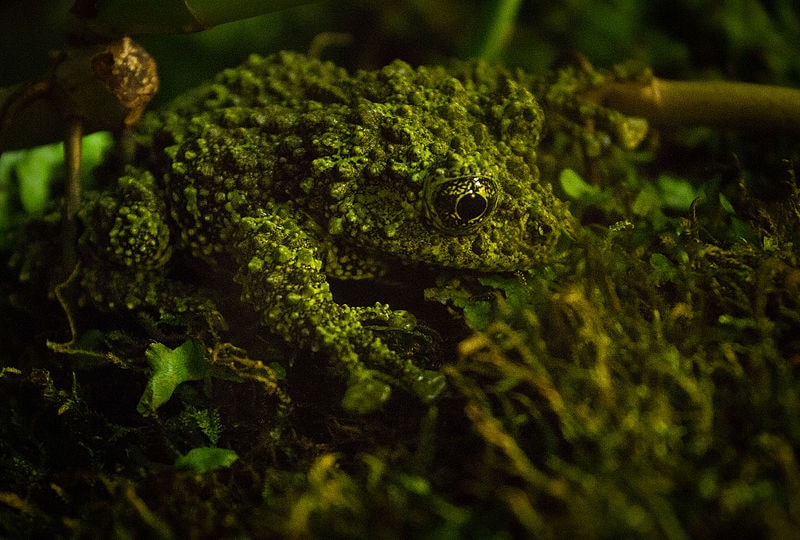
Are All Frogs Nocturnal?
Most frogs are nocturnal but not all. Certain species of frogs—most notably, many of the ones found in the forest regions of the Amazon—are diurnal. They sometimes sport brighter colors, which is considered to be a defense mechanism: So boldly standing out may give some predators the impression that the frogs are poisonous. The warmth of the daytime helps these frogs stay active by raising their body temperature in contrast to the cool temperatures that make frogs slow down at night.
Do Frogs Hibernate?
Yes! Frogs do hibernate, and they have a remarkable ability to go for long periods of time without sustenance as they do so. Being coldblooded, a frog’s hibernation is more accurately referred to as brumation.
Instead of finding a suitable cave, though, frogs simply burrow into the ground. They typically choose a sheltered location that retains warmth well, like piles of dead leaves and twigs, mud, or compost piles. It’s also important that they do not lose too much moisture, so moist materials are preferable when possible.
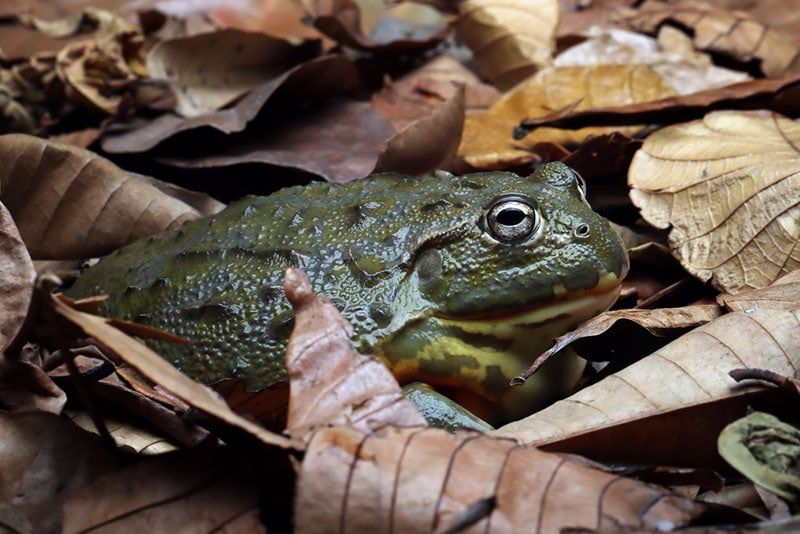
Conclusion
Frogs are some of the most fascinating (albeit slimy) creatures in the animal kingdom, and most of them are nocturnal by nature. Certain brightly colored frogs, such as several poison dart frogs and a few tree frogs are active during the day, but they’re most definitely the exceptions rather than the rule.
See Also:
- What Do Frog Eggs Look Like? Vet-Reviewed Facts & FAQ
- Why Do Frogs Croak at Night? Reasons, Science & FAQ
Featured Image Credit: Ken Griffiths, Shutterstock


